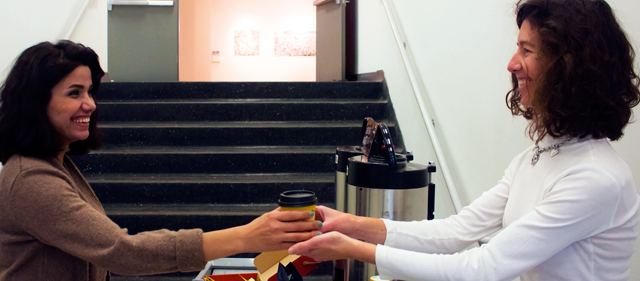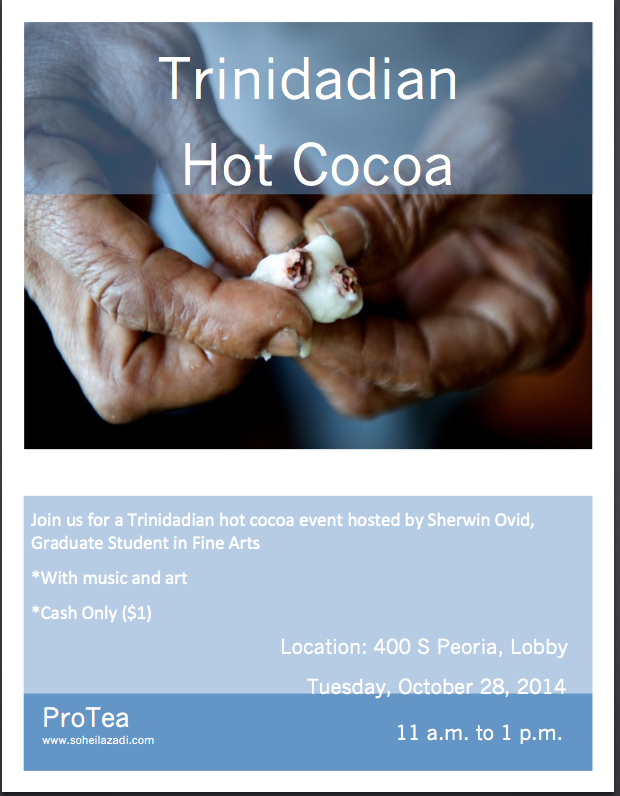Introductions: Artist Soheila Azadi Aims To Bring People Together Through Tea
By Melissa McEwen in Food on Jan 20, 2015 4:50PM

When Soheila Azadi first moved to the United States from Iran she started eyebrow threading along with other local immigrants as a way to earn money and independence. When she enrolled in graduate school she moved to Ukrainian VIllage, where she discovered the local Ukrainian immigrant culture which empowered and connected immigrants through food. “All these Ukrainian people, having meals here—as an immigrant I strive for that and miss that, this having a community” Azadi says.
Azadi missed that because once she enrolled in graduate school she found herself often isolated in the individual art studio. She wondered how to bring other artists out of these individual studios and together like the communities she saw in her neighborhood. She turned to tea “it’s something people don’t have allergies to, it’s not forbidden by religions, and there is something comforting about that…In Iran if you go to someone’s house even the poor have tea.”
 “I know many people from other countries and I asked them to collaborate” Azadi says. Her ProTea performance installation project has hosted Korean tea, South Africa tea, Trinidadian Hot Cocoa, and Italian coffee. The latter two you might notice, aren’t tea, but that’s part of the design “I don’t want to have control, I want to be very organic. I often just organize the space and put out fliers—it’s their own time.”
“I know many people from other countries and I asked them to collaborate” Azadi says. Her ProTea performance installation project has hosted Korean tea, South Africa tea, Trinidadian Hot Cocoa, and Italian coffee. The latter two you might notice, aren’t tea, but that’s part of the design “I don’t want to have control, I want to be very organic. I often just organize the space and put out fliers—it’s their own time.”
When I visited for the Korean tea, students and professors sat in Azadi’s studio, chatting, warm beverage at hand.
When asked who she thinks people should know about she points to Jon Rubin’s controversial Conflict Kitchen. In her own projects she says it’s important to be challenging. “I see something strange when everything is happy, we need to talk about real issues.”
“I don’t think art should a utopian place” and she says “some don’t like becoming aware of privileges” and are angered by her projects.
One of the controversial aspects of these kind of food and drink projects is money: Azadi sees issues with the violence of transactions and with giving away this kind of thing for free. She recognizes the importance of earning money to immigrant empowerment.
Despite that Azadi says it’s “very important for immigrants to share culture with others, to feel closer- once you start sharing, talking, share struggles, you become part of histories, part of all of us”
Introductions highlights some of Chicago’s most interesting people working with food and drink and also to turn the question to them and ask them who they think we should be watching. This is the first in the series.